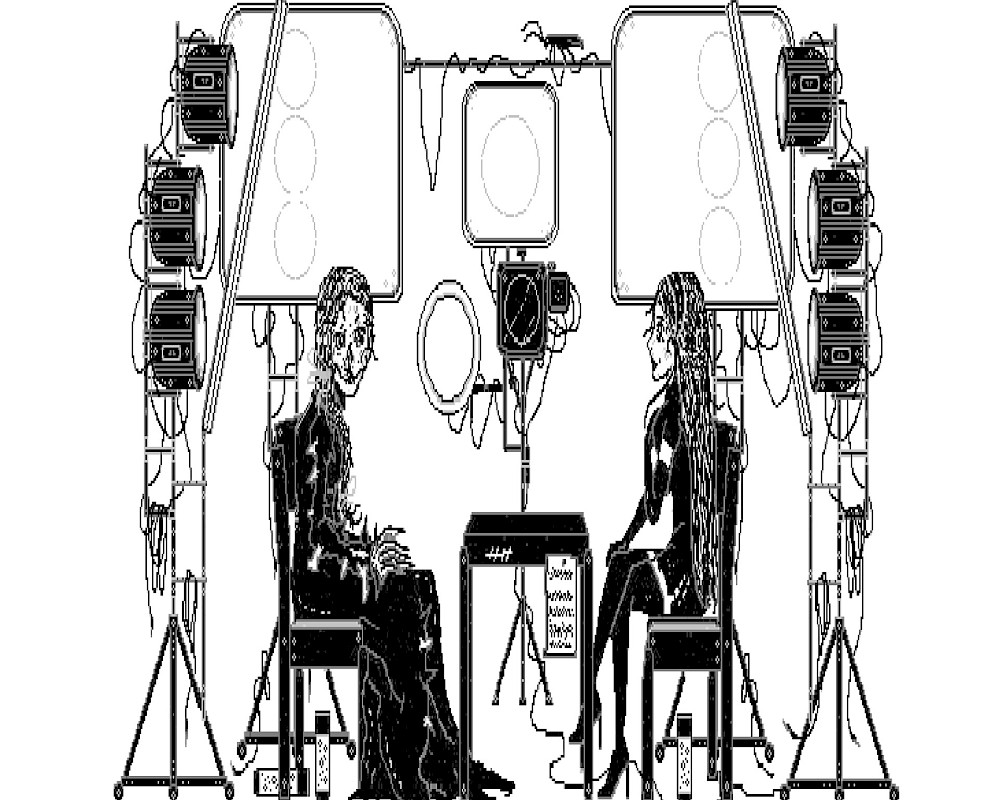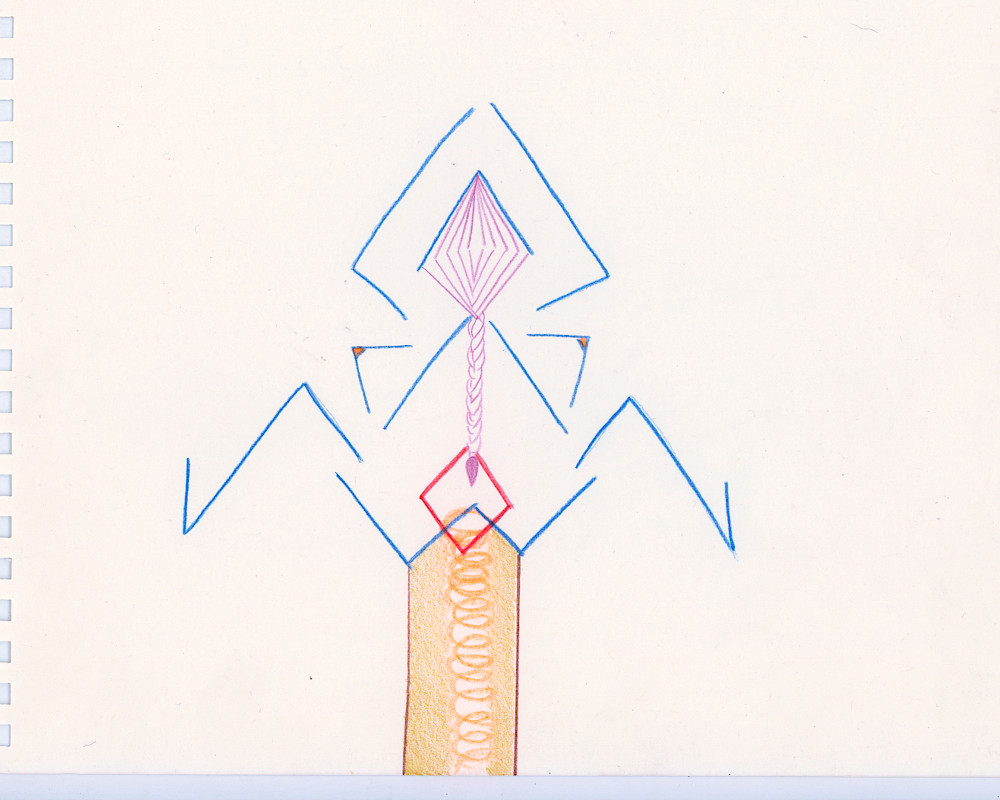column
You Wanna Know How We Got These Scars?
Ben Shai van der Wal
Ben Shai van der Wal is a writer, cultural critic, and philosopher. After his studies in philosophy and literary science (cum laude), he has been researching, teaching, and tutoring in a variety of institutions (Design Academy Eindhoven, Vrije Universiteit, Sandberg Institute, Akademie der Bildenden Künste in Nürnberg, Bezalel Academy of Arts). His ongoing research – The (T)error of Existence - delves into the entanglements between existentialism, psychoanalysis, and the politics of language.
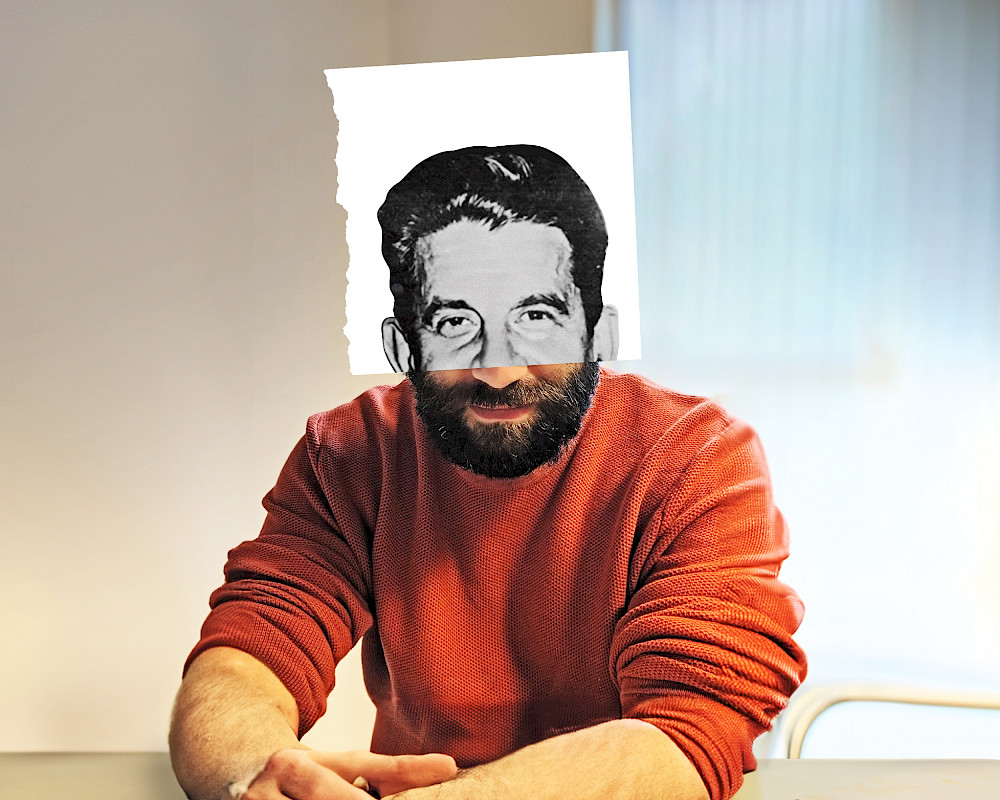
column
You Gotta Serve Somebody
“Hello” I typed, and it felt like flinging sound into a cave, testing to see if someone was there in the dark, some being of an undetermined image.
Kalle Mattsson
Kalle Mattsson is a Stockholm based graphic designer, illustrator, animator and some sort of graphic comedian, which he would like to take this opportunity to apologize for.
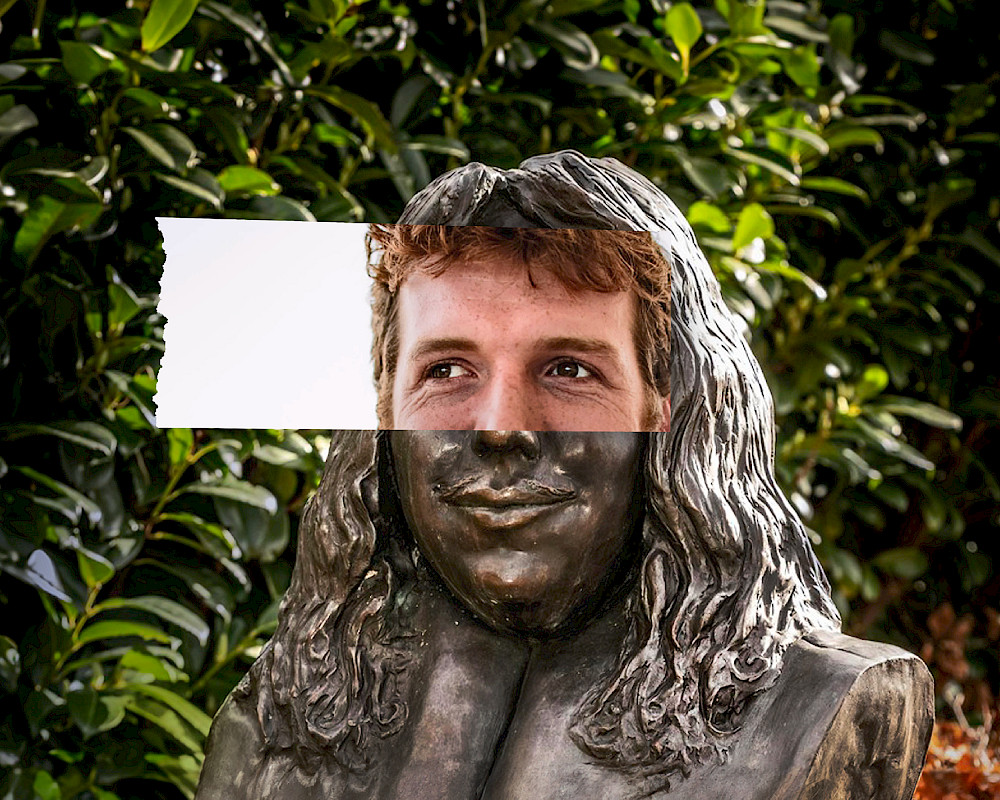
essay
A devilish grin, a suburban carpark
Essayist and poet Charlie Jermyn makes a do-it-yourself pilgrimage through museum, muck, rain, wind and pub to visit Jan Steen’s old haunts

column
You Gotta Serve Somebody
“Hello” I typed, and it felt like flinging sound into a cave, testing to see if someone was there in the dark, some being of an undetermined image.

essay
Two Nights of Noise at Tivoli
By recounting his experiences of two formative concerts at Tivoli, essayist and performer Charlie Jermyn provides a poetic account on the raw power of sound and the music of everyday life. He connects the origin of noise music to Italian Futurism, a movement fascinated with dynamism and constant innovation, and appreciates the ongoing vitality of aging cultural icons amidst the decay of our time.
7
min read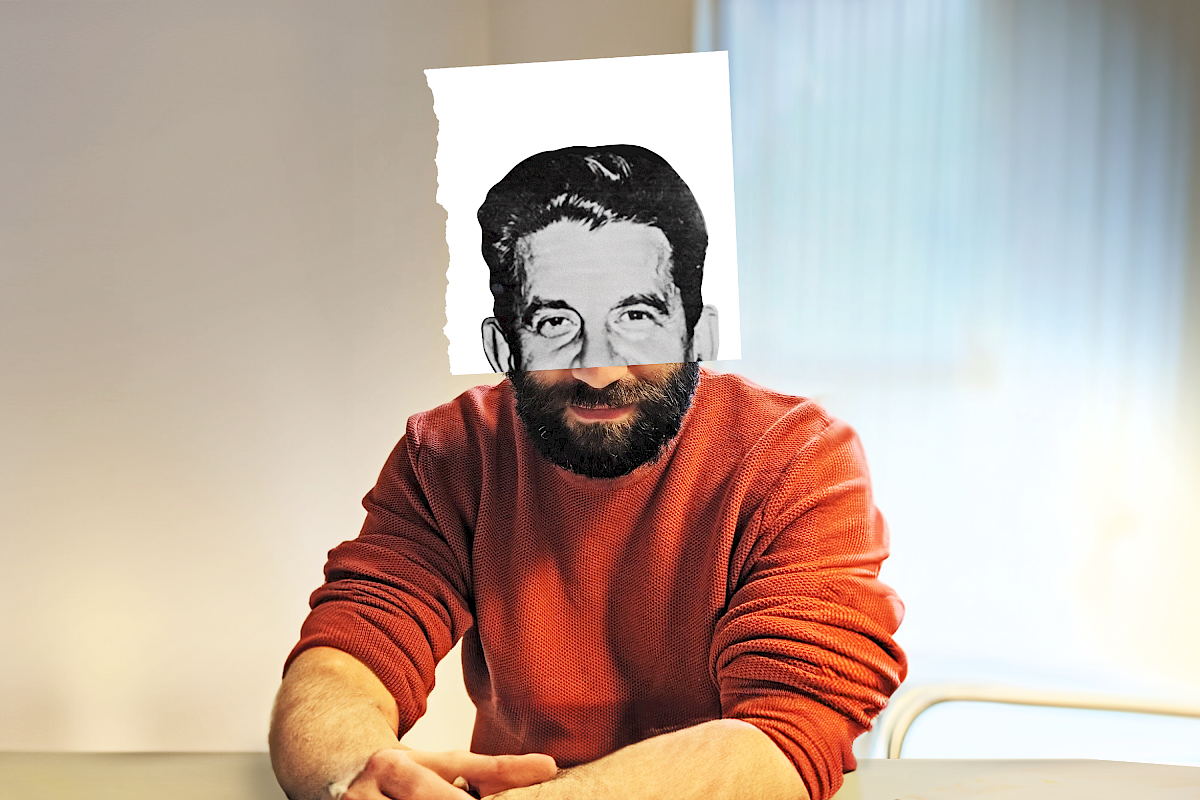
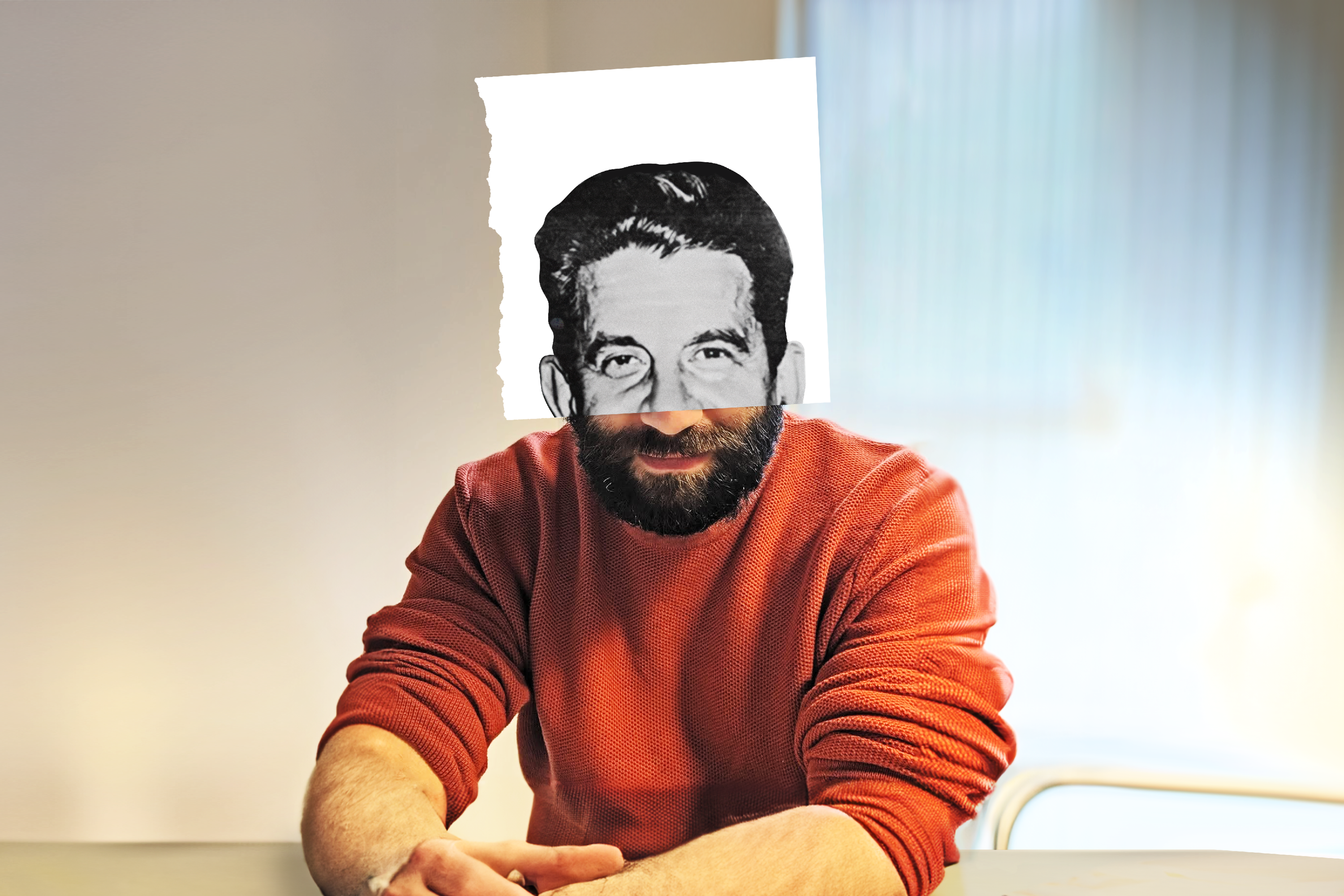
The trickster is the in-between space, neither here nor there, both present and absent.
In a new column for The Couch, philosopher and cultural critic Ben Shai van der Wal addresses the benefits, the problems, and the dismantling of psychoanalytic discourse by keeping it to its promise of healing. Using popularized concepts by a variety of psychoanalysts (yes, even he-who-shall-not-be-named) and using these to analyse cultural phenomena as subjects that display pathologies, symptoms, and insurmountable traumas, van der Wal asks a core existential question: what would it take for us to get off the couch?
Not too long ago I rewatched the 2019 lauded movie Joker because something irked me after watching it first in the cinema. It is set up as an origin story for a presumably villainous character teasing us with answers to what makes this trickster character act the way he does. The Joker's origin story makes him out to be nothing more but a product of our times; a beaten-down individual who - due to a lack of access to mental health facilities - dons his face paint and goes on a killing spree; giving us “what [we] fucking deserve”. While many reviews, essays, and theses already explore and unpack what makes this movie interesting - and the poor misunderstood incels who identified with this Joker took to the internet to meme their frustration - I was struck by a deep sense of loss.
Let me explain, I am not a DC fanboy, nor a particular fan of comic books or even superheroes. So, I was not disappointed by whether the representation is accurate to the canon or some such nonsense. I felt like the use of the trickster figure to merit a critique on the failing mental health institutions was robbing me of an exploration of the ineffable: a refusal of sense-making. I lost a trickster-friend. I started to peel off this feeling. Was it the actor? No. Was it the intertextual playfulness? The atmosphere? The cruelty and violence depicted? Was it the sympathy I was asked to have for this character while he’s getting beat down by hoodlums? No, no, no. It was that now I had a sense of where it all started, good or bad, the trauma of the trickster is exposed, therapy is demanded. The presentation of an origin story had suffocated the possibility of a radical position; to not psychologise.
What makes our beginning such an enticing concept for us as individuals? Our origin stories are the ‘reason for’ why I am the way I am. What is the trauma, the brokenness, that has fucked us up so badly that the rest of our days are spent on fixing it? This enthrallment has an underlying presumption; that our behaviour and our inner psyche should match. But what if those ‘reasons for’ are at the heart of the trauma and not the incident itself deemed so formative? What if the demand for trauma is a larger structure that forces on us an origin story? A ‘reason for’. That would make any attempt to better our lives simply deepen the power that this demand has over us.
Childhood is considered by all modernist teleology as decisive points of forming a particular individual: not loved enough? Broken in this way. Loved too much? Broken in that way. For a particularly amusing description of how early psychological development is a delicate game of Jenga, I would bring in The Freud. Too much pressure on bowel movements when you were a toddler? Boom; anal retentive disorder. Too little pressure? Well, you know. Any psychologist reading this may actually have steam coming out of their nostrils; Freud was a fraud! A sexist, misogynistic, pseudo-psychologist, etc. Sure, but what about the gesture he’s making? As much as we would like to consider that there is an epistemological framework that can support our understanding of the human psyche, the after-effect of these different methodologies is still the existential demand: make sense of me, make me coherent, make me whole, make me better. At the core of all psychological treatises is a brokenness demanding to be fixed. So, maybe not Freud – cause yucky – but then [insert preference here] therapy.
Even on a communal level, the histories we sediment through rituals, traditions of mourning and remembrance work very similarly. Once a wound is identified it needs to heal. It needs us to heal. This too can be construed as a demand for healing that might actually stand in the way of it. In other words, the subject formed by the demand for coherence is still in the same predicament; hailed as broken, and if we respond to it as such, we become broken, in need of fixing.
But what if we consider the origin story as not a ‘reason for’ our formation as individuals but as an active forming, a constant becoming, a claim upon ourselves and each other to be this supposed coherent individual, an act of individuation? Jaqcues Lacan famously built on some of Freud’s concepts, but saw a big issue with his work. Freud never considered language as a structuring principle of the psyche. So, where Freud would consider the Ego as the individual’s ability to consider themselves as such, Lacan would argue that – just like language – that ability is thrust upon us and acts as demand and desire. Language forms our psyche and is not merely an expression of it. Think of every talent show that demands from its contestants a ‘reason for’ singing, or cooking, or dancing – spoiler; it’s their grandparents *wipes away a single tear*. Think of all the times you had to introduce yourself or make sense of your feelings, or try to explain a political goal, or work of art; yep, you’re looking for an origin, for a thing to make sense for others and of others. These others demand to be part of that story, and the other in you demands exactly the same: make sense of this, no matter the cost, make me coherent, make me whole, make me better. The mantra is being formed by its demand not by the transcendental event that caused you to be you. The effect of this is that once an identity can be expressed or identified, it is of a cultural order, not an individual one. In fact, the demand for an individual formation is what makes us individuals; i.e., there is nothing inherently individual about me, I am forced to present that way. I individuate.
The archetypal figure that is able to mirror this predicament is the trickster. Bayo Akomolafe poetically asserts how “[t]ricksters are stewards of queer hope, coaxing us away from safe grounds to the monstrous ambiguities of being more fully present”(1). The trickster is the in-between space, neither here nor there, both present and absent – or present-as-absent, for the Derrida enthusiasts. The trickster then demands from us to consider this in-betweenness as an actuality, not a possibility; the possibility of actually being impossible! The loss I experienced seeing the trickster get undone by some obtuse cultural critique of mental health institutions has instilled the quest for redemption again. Again, the demand for healing gets in the way of its own possibility. It reminds me of Krishnamurti being asked “what is wrong with having the desire to do good?” To which he responds “that desire gets in the way of doing good”.
Heath Ledger’s Joker, for instance, had a few different origin stories for how he got his ‘smiling’ scars, and he relishes in telling each of them; his father cut them in his cheeks after a night of binge-drinking. Or, he did it to himself to make his wife smile again after years of being unable to conceive a child. Both origin stories are indications of the demand to make sense; neither stories do this because they are presented by a character that rejects their own individuation as redeeming. The core of Lacan’s argument presented here is that a coherent identity is always in a state of making – to consider the self as broken by trauma makes too much sense for anything ambiguous to emerge. My call here is this: embrace the trickster, don’t let healing get in the way of a good story.
1. (The Rise of Tricksters, 2016)
